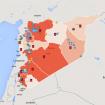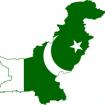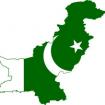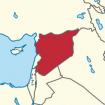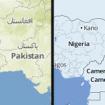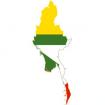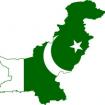News, blog posts, and event announcements. Other websites are welcome to cross-post this material with attribution and a link to the original.
What's New
05/14/2014
Syrian forces have systematically attacked the health care system in opposition-held areas over the past three years, resulting in the death of more than 460 health professionals and widespread destruction to hospitals and clinics, Physicians for Human Rights (PHR) said today as it launched an interactive map tracking these violations. PHR said government forces committed 90 percent of the confirmed 150 attacks on 124 facilities between March 2011 and March 2014, which have devastated the country’s health system.
05/13/2014
Just because time advances, it doesn’t mean conditions get better. It wasn’t all that long ago that polio had largely been eradicated from the world. But polio is back—in Nigeria, in Syria and, more significantly, in Pakistan. The story is complex, woven with political issues that seem to be unrelated to the reemergence of this horrible disease.
05/09/2014
Health workers in Peshawar face militant attacks and resistance from some locals. Pakistan is one of three nations where the virus is spreading beyond its borders. On the second floor of a local dispensary in Peshawar, Dr. Sheda Hussain stands in front of a 50-person immunization team of female health workers and technicians. Flicking through three Power Point presentations, he guides them through the process they must follow during their visits to homes around the city.
05/08/2014
Physicians for Human Rights (PHR) invites you to the launch of the Syria Mapping Project, an interactive tool developed by PHR to document attacks against health professionals, facilities, patients, and transport in Syria. PHR will be releasing its online map at two events in Washington, DC on May 15 and May 16.
05/08/2014
In an interview with the CBC this week, a World Health Organization official delicately blamed “the suspension of the vaccine in one area,” as if Pakistani health officials had committed some sort of careless lapse. This sort of airbrushing ignores the real cause, which is the systematic war the Taliban is waging against female health workers. Since July, 2012, at least 31 polio vaccination workers have been killed and many others have quit in fear of their and their families’ lives.
05/06/2014
On May 6 Save the Children launched its annual State of the World’s Mothers report, which compiles global statistics on the health and well-being of mothers and children, and uses them to produce rankings of the best and toughest places to be a mother.
05/02/2014
SITTWE, Myanmar — When the kicking stopped, Zura Begum suspected something was wrong with the twins she was supposed to deliver that month. When the pain started shooting through her body, all doubt was erased. She needed help, but had nowhere to turn. She was trapped with thousands of other Muslim Rohingya in a squalid, dusty camp in western Myanmar’s Rakhine state. The foreign aid workers she had relied on early in her pregnancy were gone — forced out by a distrustful government and extremist Buddhist mobs. Getting help outside the camps, in hospitals run by the Buddhist Rakhine majority, requires special permission that is harder than ever to obtain.
05/01/2014
BANNU: Unidentified armed men attempted to kidnap two female polio workers in Howaid area of Bannu on Wednesday before letting them go with a warning. The workers were let go after the mediation of locals but with the warning that they would be killed if seen vaccinating children in the area again. An official of the Howaid police station, Fidaullah Wazir, said Taj Bibi and Gohar Taj complained to the police that they were immunising children in Mamakhel when three armed men approached them.
05/01/2014
TANK: The kidnappers set free the six employees of the World Health Organisation who had been kidnapped from the Pang area on February 17, an official said on Wednesday. Assistant Political Agent, Frontier Region Tank, Nasir Khan, told reporters that the anti-polio team, including Dr Khandad, in-charge of the Union Council Siddiqullah, driver Kalim, three Levies personnel — Lance Naik Daulat Khan, Sepoy Amanullah and Sepoy Minhas — had left for the Pang area at 8 am to administer the anti-polio drops to children when they were kidnapped on February 17.
04/30/2014
Organizers of the Third Global Symposium on Health Systems Research (Cape Town, September 30 – October 3) are launching a blog to explore the theme of people-centered health systems. The health systems of fragile and conflict-affected states is one of the focus areas, along with health systems research, policy and implementation issues, research methodologies, teaching health systems, universal health coverage, medicines in health systems, human resources for health, and the translation of evidence into action.


